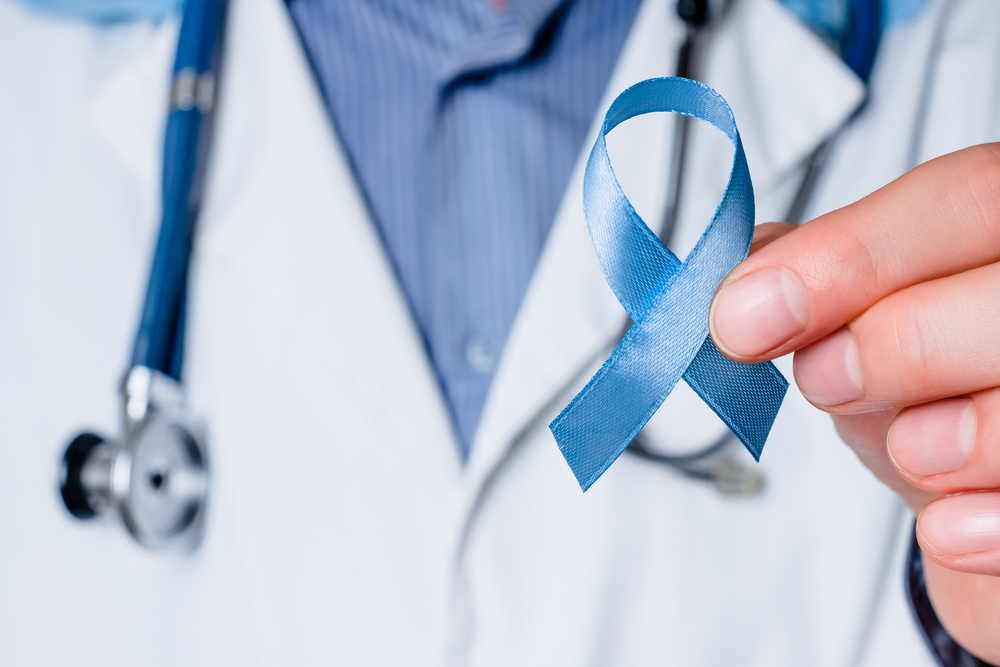Researchers at the University College London (UCL) have discovered a new prostate cancer treatment. They have had success using light therapy to treat prostate cancer, in its early stages, as part of a recent trial in the United Kingdom.
“The new non-surgical treatment for low-risk prostate cancer can effectively kill cancer cells while preserving healthy tissue,” according to a statement released by UCL.
It’s called “vascular-targeted photodynamic therapy” (VTP). It involves injecting a light-sensitive drug into the bloodstream and activating it with a laser. This will destroy tumour tissue in the prostate.
The research found around half (49 per cent) of patients treated with VTP went into complete remission. This was compared with 13.5 per cent in the control group. Four-hundred and thirteen people participated in the trial.
“These results are excellent news for men with early localised prostate cancer, offering a treatment that can kill cancer without removing or destroying the prostate,” lead researcher Professor Mark Emberton said.
“This is truly a huge leap forward for prostate cancer treatment, which has previously lagged decades behind other … cancers such as breast cancer.
“In prostate cancer we are still commonly removing or irradiating the whole prostate. This is so the success of this new tissue-preserving treatment is welcome news indeed,” he said.
Prostate cancer treatment has “almost no side effects”
Existing treatments for “high-risk” prostate cancer can lead to lifelong erectile dysfunction. It can also leave 1 in 5 patients with urinary incontinence. According to UCL’s statement, patients receiving VTP aren’t experiencing either of these symptoms long-term.
“VTP only caused short-term urinary and erectile problems. This was resolved within three months and no significant side effects remained after two years,” UCL’s statement said.
“The chances of cancer progressing to a more dangerous stage were also three times lower for patients on VTP. The treatment also doubled the average time to progression from 14 months to 28 months.”
Drug comes from sea-bed bacteria
The prostate cancer treatment drug used in the procedure is derived from bacteria that live in almost total darkness at the bottom of the ocean. The bacteria becomes toxic when exposed to light and kills cancer cells.
“To survive, with very little sunlight, they have evolved to convert light into energy with incredible efficiency,” UCL published.
“This property has been exploited to develop the drug into a compound that releases free radicals to kill surrounding cells when activated by laser light.”
Australian expert wants more proof
Doctor Peter Heathcote from the Urological Society of Australia told Nine News long-term studies are needed to prove the treatment improves survival rates.
“Hopefully in the next 10 years or so we’ll see if that’s the case. In the meantime, doctors advocate monitoring for low-risk patients,” Dr Heathcote said.
“Active surveillance, without a doubt, is the preferred treatment,” he said.
Patient feels “lucky” after VTP
“The treatment I received on the trial changed my life. I’m now cancer-free with no side effects and don’t have to worry about needing surgery in the future,” trial participant Gerald Caton told BBC News.
“I feel so lucky to be in this position. I’ve met other men who had surgery – they had to stay in hospital for days whereas I could go home the next day. One also suffered from terrible incontinence which he found very distressing.
“I had some minor side effects for a few weeks after the operation, I’m back to normal now.” he said.
If you’d like to hear Professor Emberton explain the significance of this new treatment, watch this video posted by BBC News.





